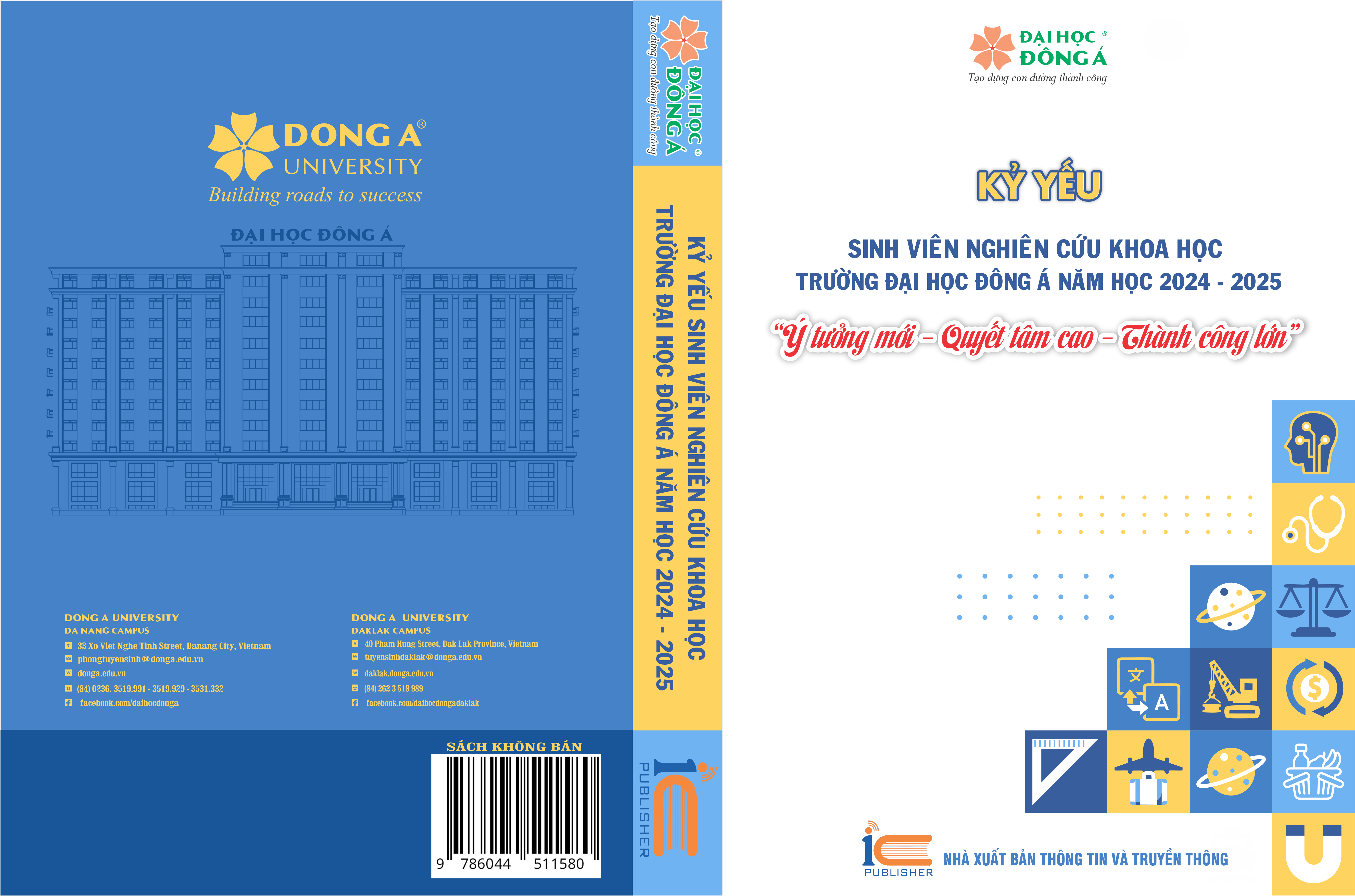ASSESSING SOCIAL SKILLS OF HIGH SCHOOL STUDENTS IN DA NANG CITY USING THE SOCIAL SKILLS RATING SYSTEM (SSRS)
Main Article Content
Abstract
Social skills (SS) are crucial for the development and success of high school students. This study assessed the status of SS (Cooperation, Assertion, Empathy, Self-Control) among 338 students (grades 10-12) from three high schools in Da Nang and examined the preliminary effectiveness of a 3-month intervention package including: guided expressive/reflective writing ("Write to Grow" handbook), suggested self-learning via podcasts/YouTube, and participation in school-based skills education activities. Using a one-group pretest-posttest design and an adapted SSRS/SSIS scale via Google Forms, baseline results (T1) showed average-to-fair SS levels (Cooperation highest, Assertion lowest), while perceived importance was very high. Peers, personal factors, and family were perceived as most influential. Post-intervention (T2), frequency scores for all four skill domains increased significantly (p < 0,05 - assumed), especially for Self-Control (+0,37) and Empathy (+0,32), suggesting the potential of diverse intervention methods. However, Assertion skills showed the least improvement, and perceived importance for Assertion and Self-Control slightly decreased. The study highlights the need for SS education and proposes optimizing interventions, particularly focusing on practicing assertion and effectively integrating different learning approaches like writing and guided self-learning.
Article Details

This work is licensed under a Creative Commons Attribution-NonCommercial-NoDerivatives 4.0 International License.
Keywords
Social skills, high school students, SSRS, Da Nang, expressive writing, online self-learning, life skills education, school-based intervention
References
Lê Mỹ Dung, Lê Thị Linh Phương, Đặng Nguyễn Thanh Tâm (2019). Kĩ năng xã hội của học sinh trung học cơ sở trên địa bàn thành phố đà nẵng. Tạp chí khoa học xã hội, nhân văn và giáo dục.
Lê Văn Duy (2023) Khảo sát kỹ năng xã hội của sinh viên trường đại học đông á bằng thang social skills rating system. Trường Đại học Đông Á.
Bandura, A. (1977). Social learning theory. Prentice-Hall.
Bronfenbrenner, U. (1994). Ecological models of human development. In International Encyclopedia of Education (Vol. 3, 2nd Ed., pp. 1643-1647). Elsevier.
Brown, B. B., & Larson, J. (2009). Peer relationships in adolescence. In R. M. Lerner & L. Steinberg (Eds.), Handbook of adolescent psychology: Vol. 2. Contextual influences on adolescent development (3rd ed., pp. 74–103). John Wiley & Sons Inc.
CASEL (Collaborative for Academic, Social, and Emotional Learning). (2020). CASEL’s SEL framework. https://casel.org/sel-framework/
de Mooij, B., Fekkes, M., Scholte, R. H. J., & Overbeek, G. (2020). Effective components of social skills training programs for children and adolescents in nonclinical samples: A multilevel meta-analysis. Clinical Child and Family Psychology Review, 23(2), 250–264. https://doi.org/10,1007/s10567-019-00308-x
Durlak, J. A., Weissberg, R. P., Dymnicki, A. B., Taylor, R. D., & Schellinger, K. B. (2011). The impact of enhancing students’ social and emotional learning: A meta-analysis of school-based universal interventions. Child Development, 82(1), 405–432. https://doi.org/10,1111/j.1467-8624.2010,01564.x
Erikson, E. H. (1968). Identity: Youth and crisis. W. W. Norton & Company.
Gresham, F. M., & Elliott, S. N. (1990). Social Skills Rating System Manual. American Guidance Service.
Pennebaker, J. W. (1997). Writing about emotional experiences as a therapeutic process. Psychological Science, 8(3), 162-166.


